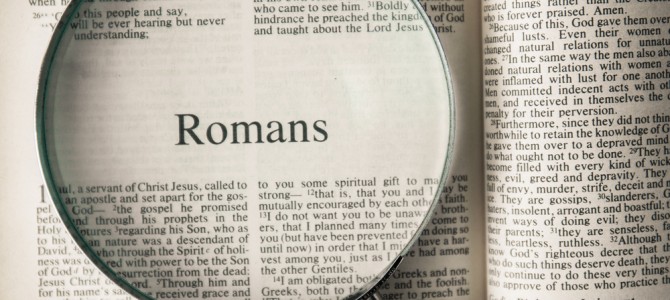
Journalist Terry Mattingly wrote a great column back in 2006 noting the trouble many journalists have understanding the finer details of religion news. His column, “Reporters, crow’s ears and Karma Light nuns,” begins with an anecdote about how The New York Times covered the funeral of Pope John Paul II the prior year:
“The 84-year-old John Paul was laid out in Clementine Hall, dressed in white and red vestments, his head covered with a white bishop’s miter and propped up on three dark gold pillows,” wrote Ian Fisher of the New York Times. “Tucked under his left arm was the silver staff, called the crow’s ear, that he had carried in public.”
Get the joke? You see, that ornate silver shepherd’s crook is actually called a crosier (or “crozier”), not a “crow’s ear.”
Sometimes I check in on this April 4, 2005 piece to see if the Times has gotten around to correcting it. As of today, they have not! Sometimes I hope they never will.
But crozier mistakes are understandable. Less understandable? Saying Jesus is buried in the Church of the Holy Sepulchre, that Easter marks Jesus’ “resurrection into heaven,” that St. Patrick is known for banishing slaves from Ireland, or that William Butler Yeats is the author of the Book of Hebrews.
Then there’s what New York Times political reporter Jeremy W. Peters wrote for his piece “After Orlando, a Political Divide on Gay Rights Still Stands.” Peters is a reporter who struggles to cover issues fairly. He’s known for helping Nancy Pelosi avoid questioning on her abortion stance and other instances of being almost comically partisan in his reporting.
The article is less reportage than it is fuel for what it purports to describe:
The massacre, with stunning speed, has been transformed into a political wedge, beginning with fierce disagreements over just what the crime should be called. An attack by “radical Islamic terrorists,” as Republicans insisted? A hate crime in a place seen as a safe haven by gays, as many Democrats said?
Peters highlighted, among other things, the shameful Anderson-Cooper-avoidance theater.
And then this:
A Republican congressman read his colleagues a Bible verse from Romans that calls for the execution of gays.
Come again? Wait, what? What? What in the world is he talking about? A “Bible verse” from “Romans” that calls for the “execution of gays”? Way to bury the lede there, Peters. You found something that no one else has ever found in two millenia! Though maybe you should go ahead and show your exegesis if you’re going to make such an amazing claim.
Instead he links to a Roll Call story that makes a similar claim. That one is written by one Jennifer Shutt and claims that “House Republicans at a conference meeting heard a Bible verse that calls for death for homosexuals” before a recent vote.
Another story by Shutt says it’s a verse “calling for the death of homosexuals.” The stories say that the passage “discusses what types of penalties the Bible says should be applied to those who are not heterosexual.”
If you have even a passing knowledge of St. Paul’s Epistle to the Romans, the Gospel of Jesus Christ, Christianity in general, heck, the Western canon, or Western Civilization itself, you are probably confused. If you have met a Christian in your life, ditto.
Turns out … well, it turns out that reporters and editors at these two papers apparently do not have this knowledge.
The passages Rep. Rick Allen, R-GA, read were from Romans 1 and also a few verses from the Book of Revelation. It should go without saying, but sadly doesn’t in 2016 America, that neither call for the execution of gays or for their deaths.
Some Background, In Case Members of the Media Are Reading This
In Romans, Paul is defending Christianity and its mission. It has “law” themes and “gospel” themes. The “law” themes include believers’ struggles with sin, our hardened hearts, God’s wrath against sinners, death’s reign through sin, our submission to authorities, and the love we owe one another. But that’s not all! We also learn how God declares us righteous through faith in Christ, how we are made alive in baptism, how God bestows gifts such as the forgiveness of sins upon us, and how we are united in Christ. Those are the “gospel” themes.
It’s very much a 101 type book in that it’s a great introduction to Christianity, but that doesn’t mean it’s simple. It’s very challenging, for about a million different reasons. And it’s regarded as Paul’s greatest work. In any case, Romans 1 is a favorite chapter of mine because it includes the verse I was given when I was confirmed in the faith: “For I am not ashamed of the gospel, for it is the power of God for salvation to everyone who believes, to the Jew first and also to the Greek.” (Yay, Romans 1:16!) It also has great prose such as, “Claiming to be wise, they became fools,” in verse 22.
Anywho, the member of Congress read the section on idolatry. It talks about how God is revealed in nature and how God reveals laws to His people. But the people’s hearts are hardened and they reject God. Paul writes candidly about how homosexual activity exchanges a natural desire for the opposite sex with a lust for one’s own. And yes, he really is talking about homosexual activity.
Which is funny, because when Lisa Miller wrote the Newsweek cover story mocking Christians for opposing the redefinition of marriage, she couldn’t find hardly any biblical evidence to back Christians’ stated views on marriage. (See Sola scriptura minus the scriptura.) She wrote, “The apostle Paul echoed the Christian Lord’s lack of interest in matters of the flesh.” Here’s what she had to say about the passage that The New York Times alleges calls for the execution of gays:
Paul was tough on homosexuality, though recently progressive scholars have argued that his condemnation of men who “were inflamed with lust for one another” (which he calls “a perversion”) is really a critique of the worst kind of wickedness: self-delusion, violence, promiscuity and debauchery. In his book “The Arrogance of Nations,” the scholar Neil Elliott argues that Paul is referring in this famous passage to the depravity of the Roman emperors, the craven habits of Nero and Caligula, a reference his audience would have grasped instantly. “Paul is not talking about what we call homosexuality at all,” Elliott says. “He’s talking about a certain group of people who have done everything in this list. We’re not dealing with anything like gay love or gay marriage. We’re talking about really, really violent people who meet their end and are judged by God.” In any case, one might add, Paul argued more strenuously against divorce — and at least half of the Christians in America disregard that teaching.
Religious objections to gay marriage are rooted not in the Bible at all, then, but in custom and tradition (and, to talk turkey for a minute, a personal discomfort with gay sex that transcends theological argument).
Isn’t that interesting? That when the push for same-sex marriage is in full heat, the media condescendingly explain that Christians are wrong to think Paul was speaking against homosexuality in any way, but when an Islamist terrorist is murdering scores of people in a gay club, the real culprit for the attack might be St. Paul?
Anway, Roll Call‘s Shutt writes:
Passages in the verses refer to homosexuality and the penalty for homosexual behavior. “And likewise also the men, leaving the natural use of the woman, burned in their lust one toward another; men with men working that which is unseemly, and receiving in themselves that recompense of their error which was meet,” reads Romans 1:27, which Allen read, according to his office.
“And even as they did not like to retain God in their knowledge, God gave them over to a reprobate mind, to do those things which are not convenient; Being filled with all unrighteousness, fornication, wickedness, covetousness, maliciousness; full of envy, murder, debate, deceit, malignity; whisperers, Backbiters, haters of God, despiteful, proud, boasters, inventors of evil things, disobedient to parents, Without understanding, covenant breakers, without natural affection, implacable, unmerciful: Who knowing the judgment of God, that they which commit such things are worthy of death, not only do the same, but have pleasure in them that do them,” read lines 28-32, which Allen also recited, according to his office.
If you’re going to do the exegesis, Right Reverend Shutt, I might recommend knowing that we don’t call verses “lines.” Also, maybe notice that the listing of sins indicts literally every single human on the planet. So if you’re thinking that Christianity calls for the execution of gays, you have to think, on the basis of the same passage, it calls for the execution of everyone. And if you’re thinking that, and you know anything at all about Christianity, maybe ponder whether everything you’ve written is embarrassingly wrong.
Instead, Shutt specifically said, falsely, that this passage “discusses what types of penalties the Bible says should be applied to those who are not heterosexual.” Wrong. Wrong. And wrong, wrong, wrong. It doesn’t discuss types of penalties. It doesn’t say penalties should be applied at all. And the passage applies to everyone.
There’s no mention of whether Shutt’s cited translation is the one Allen used, but the “worthy of death” phrase (in my Bible, it’s “deserve to die”) is simply a restating of a basic teaching of Christianity. Let’s hop on over to Romans 6:23. (But read the whole chapter because it’s amazing.)
“For the wages of sin is death, but the free gift of God is eternal life in Christ Jesus our Lord.”
This is the good news of Christianity! We’re all sinners who deserve death, but in Christ Jesus, we receive forgiveness and eternal life. If Revs. Shutt and Peters go just one verse past the “execution” passage they claim to have discovered, they would also find:
For in passing judgment on another you condemn yourself, because you, the judge, practice the very same things.
Which is important to note when considering the passages that are so offensive to people who have different sets of doctrines than traditional Christians.
Yes, Paul says God’s created order should not be corrupted and that to alter it is a result of idolatry. Remember that the book is called Romans because Paul is writing to them. Many Roman citizens thought that homosexual behavior had undermined Greek civilization. So when they hear Paul making a point about it, many would have been inclined to agree readily in a self-righteous manner. But then he “springs a trap” as my Study Bible puts it, by listing all these other things that they do. Let’s look again:
“Since they did not see fit to acknowledge God, God gave them up to a debased mind to do what ought not to be done. They were filled with all manner of unrighteousness, evil, covetousness, malice. They are full of envy, murder, strife, deceit, maliciousness. They are gossips, slanderers, haters of God, insolent, haughty, boastful, inventors of evil, disobedient to parents, foolish, faithless, heartless, ruthless.”
Now who’s got standing to be self-righteous? Not a single one of us.
The ever-changing sexual doctrines being handed down by our media and other elite institutions are at odds with many Christian teachings. On sexual distinctions, knocking boots, procreation, marriage, divorce, and much else. We may wish it weren’t so, but it is.
If we are to live in a tolerant society where people are allowed to hold views about sex that deviate from the priestly councils at the media corporations and in academia and in politics — if we are to live in a society where people are allowed to be Christian — we have to deal with that. A good training for tolerance is to understand and accurately convey the views of those sexual revolution heretics who stubbornly keep following their ancient teachings no matter how much the forces of conformity bear down.
Let’s work on that, New York Times.









